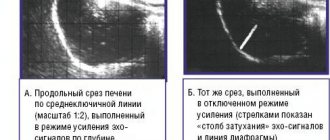The Mediterranean diet is a unique type of diet that received the status of intangible cultural heritage from UNESCO in 2013. In the mid-twentieth century, researchers noticed that Mediterranean residents were less likely to suffer from excess weight, diabetes and cardiovascular diseases, and these are the main risks that reduce life expectancy.
An explanation for this phenomenon was found in the special set of products and food intake that the inhabitants of the Mediterranean region historically adhered to. The term “Mediterranean diet” itself was introduced by American nutritionists Ansel and Case, who themselves adhered to this principle of nutrition and lived up to 97 and 100 years, respectively.
What do scientists think about it?
The results of various studies show that people who adhere to the Mediterranean diet are more likely to live longer
. One of its main components - olive oil - protects the liver from damage, and the nervous system from Alzheimer's disease and depression.
The ABCs of healthy eating
20 facts about how to eat right will help you build a balanced diet for health and well-being.
The abundance of natural spices used in the preparation of Mediterranean cuisine supplies the body with antioxidants. In fact, these are natural “preservatives” that protect cells from the destructive effects of free radicals and even cancer.
The main goals of changing the diet of cancer patients are:
- ensuring good functioning of the immune system;
- neutralization and removal of decay products of malignant tumors from the body (detoxification);
- stimulation of a surge of vitality and energy for an active fight against cancer;
- ensuring the proper functioning of critical organs, especially the kidneys, liver and intestinal tract;
- in addition to the main treatment with the supply of natural substances that can slow down the growth of the tumor.
In foreign clinics, the patient is given special attention, which includes, among other things, choosing the right diet that would promote good health and increase the body's resistance. At the same time, doctors closely monitor changes in health and, if necessary, adjust food intake.
In Turkey, an integrated approach is used to treat cancer patients, so specialists create a balanced nutrition program for cancer. This helps maintain the patient’s strength and also minimize the side effects of radical therapy.
Basic principles
Mediterranean cuisine is the complete opposite of the modern style of eating, which is based on the principle: “heat something, eat something.” The Mediterranean diet involves preparing food yourself without processing it beyond recognition. Aromatic spices are used frequently, but the dishes are never overly hot or spicy. Basil, oregano (oregano), rosemary
and other “Italian” seasonings known to us are intended only to highlight the taste of the dish, and not to make you want to wash it down immediately.
The basis is carbohydrates
If you imagine a typical Mediterranean diet as an inverted pyramid, then at its base, occupying approximately 60 percent of the calorie content
, are carbohydrates.
But this is not sugar or white bread. Most often these are carbohydrates with a low glycemic index - unrefined cereals, durum wheat pasta, legumes and coarse bread. In addition, the diet of any Mediterranean resident is rich in vegetables and fruits, which supply fiber and antioxidants. How to apply
? You don’t have to look for expensive “authentic” pasta, couscous or bulgur in stores. Regular pearl barley or wheat groats, buckwheat, baked potatoes with skin, beans and lentils will become the basis of the Mediterranean lifestyle for the residents of Russia. Even rolled oats will work - but use ones made from whole grains more often. There is no need to buy exotic fruits and vegetables: green salads, carrots, apples, various types of cabbage and fresh herbs contain enough antioxidants to protect the body. Just try to choose seasonal fruits and vegetables - they contain the most nutrients.
Rules for quitting the diet
Organization of nutrition is more consistent with the definition of a lifestyle than a diet. However, returning to eating fast food, sugar, and food waste leads to gaining extra pounds.
- It is recommended to control the intake of calories when introducing red meat into the diet, because its calorie content is higher than white varieties.
- Gradually butter is added to morning porridge. An excess of fatty foods causes heaviness in the stomach and heartburn.
- Before changing meals, fasting days are spent on drinks or solid food.
About olive oil
An almost obligatory ingredient in Mediterranean dishes is olive oil. Not everyone can afford it, but if you decide to use it, don’t skimp – choose unrefined varieties
from well-known manufacturers.
They retain all the beneficial substances and microelements. However, the principle of “oil in all dishes” does not mean that you need to fry it and pour it into salads by the glass. Overcooked olive oil loses its beneficial properties, and there is even more fat in vegetable oils than in animal oils - up to 98 percent. Calories – up to 880 kcal per 100 g. Therefore, moderation
is another one of the principles of the Mediterranean diet.
Calculate your daily fat intake and normalize the amount of oil, taking into account other sources of fat. It is convenient to measure any vegetable oil with tablespoons - one contains 15-20 g
, depending on its size.
How to apply
?
Olive oil can be easily replaced with any unrefined vegetable oil - sunflower or soybean
. The Omega-3 fatty acid complex, which has a positive effect on the entire body, is found in almost all vegetable oils.
Dictionary
Water and vitamin deficiency, salt and the glycemic index, coffee and the list of “E” codes. Basic concepts, knowledge of which helps to form a balanced diet.
How to ground potatoes and sandwiches? Mediterranean Diet Recipes
Dorada in 20 minutes
You will need: 2 pcs sea bream, 1 lemon, bay leaf, olive oil, salt, paprika
Method of preparation: clean the fish, gut it, rinse thoroughly inside and out. Dry with paper towels and rub with salt. Cut the lemon in half; Set aside one half, cut the second into thin circles. Place 2-3 lemon mugs and 2 bay leaves inside each fish. Preheat the oven to 190°C. Cover the baking sheet with a sheet of parchment. Mix olive oil with paprika. Place the fish on a baking sheet and pour this mixture generously over it. Place in the oven and bake for 10 minutes. Pour juice from half a lemon over the finished fish and serve immediately.
Zucchini with cheese
You will need: zucchini - 2 pcs., hard cheese - 200 g, ground allspice. Method of preparation: wash the zucchini, cut into circles 3-5 mm thick, preferably diagonally. Cover the baking sheet with parchment, grease with olive oil, and lay out the zucchini. Top with a little ground pepper. Then grate the cheese, preferably on a fine grater, and place it on each slice of zucchini. And put in the oven for 10-15 minutes, 200 degrees.
Avocado boats
You will need: 2 ripe avocados, 2 apples, cream cheese or cottage cheese with 9% fat content, fresh mint. Method of preparation: grate apples on a fine grater. Cut the avocado into 2 halves, scoop out the flesh with a spoon so that the “boats” remain intact. You tear the mint with your hands. Mash the avocado pulp with a fork along with cheese or cottage cheese, add apples and mint. Fill the “boats” with the mixture again. A hearty and healthy snack is ready.
Dairy
In third place, occupying approximately 10 percent
of the diet, are dairy products.
True, due to the climate, Mediterraneans rarely consume whole milk or dairy desserts. The focus is on fermented milk products. Nobody includes fatty hard cheeses in their daily diet either. Traditional dairy products of the Mediterranean diet are low-fat yoghurts, young curd cheeses and curdled milk
.
How to apply
? Low-fat cottage cheese, yoghurts without sugar and fillers and kefir are very tasty. Sometimes you can treat yourself to quality hard cheese. It has a lot of calcium, but also a lot of fat and salt.
Diet and diseases
The Mediterranean diet can help prevent many common chronic diseases.
| Cardiovascular diseases | Reduces the risk of heart attacks |
| Type II diabetes | Helps stabilize blood glucose levels and reduce insulin resistance |
| Aging | Prevents cell damage due to inflammatory processes |
| Brain diseases | Reduces cognitive decline |
| Oncological diseases | Helps reduce the risk of some common cancers, such as colorectal cancer |
There is also evidence that the Mediterranean diet can prevent Alzheimer's disease and alleviate the symptoms of Parkinson's disease.
Animal proteins
And finally, another 10 percent
comes from animal proteins - meat, fish and eggs.
About meat separately - in this food system it is used mainly to enhance the taste of dishes made from vegetables and grains. Mediterraneans practically do not use pork for daily cooking - most often chicken and lean beef are on the table. Fish dishes
are prepared several times a week.
Which, by the way, is fully consistent with the recommendations of the World Health Organization. There are few very fatty fish in the Mediterranean Sea that live in the north, and the diet of the inhabitants of this region does not contain salmon or herring. But there is a lot of freshly caught low-fat fish and seafood, from which the first and second courses are prepared. How to apply
? A kilogram of frozen mussels costs less than a kilogram of pork fillet, and stores often sell live or chilled fish. The costs of purchasing and preparing it will more than pay off, because it is more profitable, tastier and healthier to cook from fresh products than from ready-made semi-finished products.
Benefits of the Mediterranean Diet
Products for this diet are minimally processed and without the additional addition of refined sugar.
These are olive oil, vegetables and fruits, legumes, nuts, durum whole grains and small portions of animal products, which are necessarily “organic” and not shelf-stable. There are virtually no GMOs, artificial ingredients, preservatives, flavor enhancers and very little sugar. For desserts, Mediterranean people use fruit or light homemade desserts using natural sweeteners such as honey.
The animal component of the diet is represented by moderate consumption of cow, goat or sheep cheese and yoghurts and a lot of locally caught fish. It is a source of omega-3 fatty acids and other healthy fats, “correct” cholesterol, which strengthens the walls of blood vessels [11].
Improvement of the cardiovascular system
High intakes of monounsaturated fats and omega-3 foods are associated with significant reductions in all-cause mortality, especially from heart disease. Many studies have shown the positive effects of a Mediterranean diet rich in alpha-linolenic acid (ALA) from olive oil, including a 30 percent reduction in the risk of death from cardiovascular disease, as well as a 45 percent reduction in acute heart failure. [12,13]
Also, Warwick Medical School found that among people who regularly consume extra-virgin olive oil, there is a higher reduction in blood pressure compared to people who consume mainly sunflower oil. [eleven]
In addition, it is extremely rare for Mediterranean people to have low levels of “good” cholesterol because they habitually get a lot of healthy fats from their natural diet.
Losing weight the healthy way
On this diet, you can eat a very varied and tasty food without feeling hungry. Therefore, you can follow this diet for a long time without breakdowns, regulating your weight and reducing your fat intake in an easy and natural way. There is room for variation in the Mediterranean diet, whether you prefer to increase the amount of carbohydrates or emphasize high-quality protein products from animal and, especially, plant sources. In any case, this style of eating will help regulate weight gain, control blood sugar levels, improve mood and consistently high energy levels.
Cancer Prevention
According to researchers from the Department of Surgery at the University of Genoa, Italy, a balanced ratio of omega-6 and omega-3 essential fatty acids, high fiber content, antioxidants and polyphenols found in fruits, vegetables, olive oil and wine, protects DNA from damage and stops cell mutation , reduces inflammatory processes and delays tumor growth. Olive oil also reduces the risk of colon and intestinal cancer. [14]
Treatment and prevention of diabetes
The Mediterranean diet controls excess insulin, the hormone that controls blood sugar, causes us to gain weight, and maintains our weight even as we diet.
There is ample evidence to suggest that the Mediterranean diet may serve as an anti-inflammatory diet that may help combat diseases associated with chronic inflammation, including metabolic syndrome.
A low-sugar diet with plenty of fresh foods and fats is part of a natural lifestyle for diabetics.
A Mediterranean eating style helps prevent blood sugar spikes and valleys. Carbohydrates - in the form of whole grain bread or durum wheat pasta, often combined with olive oil or cheeses, plenty of greens and vegetables - are an excellent source of energy for several hours without significant spikes in sugar levels and an early feeling of hunger. [15]
Protecting cognitive health and promoting good mood
Healthy fats like olive oil and nuts are known to help fight age-related cognitive decline. They can counteract the harmful effects of toxicity, free radicals, poor inflammatory diets, or food allergies that can contribute to brain dysfunction. [16] Cognitive disorders can occur when the brain does not receive enough dopamine, an important chemical needed for proper body movement, mood regulation, and mental functioning.
Probiotic foods such as yogurt and kefir promote healthy gastrointestinal function, which has also been linked to cognitive function.
Thus, the Mediterranean style of eating may be a natural treatment and prevention for Parkinson's disease, Alzheimer's disease and age-related dementia. [6.17]
Promotes longevity
Back in 1988 A study was conducted in Lyon in which patients after heart attacks were asked to follow a Mediterranean diet with plenty of monounsaturated fats, or a standard diet with a significant reduction in saturated fats. Four years after the start of the study, the results of a follow-up examination showed that patients in the first group were 70% less likely to suffer from heart disease, and also had a 45% lower risk of death from any cause than in the group with a standard diet. At the same time, there was no big difference in the level of total cholesterol, which proved the absence of its direct relationship with heart disease. The results were so impressive and groundbreaking that, for ethical reasons, the study was stopped early on so that all participants could continue to follow a Mediterranean diet for maximum health and longevity. [18]
Helps relieve stress and relax
Chronic stress significantly reduces quality of life and negatively affects weight and overall health. The Mediterranean diet encourages you to spend more time in nature and get a good night's sleep. This is a great way to relieve stress and therefore prevent inflammation. And also - there is more time to laugh, dance, relax and engage in hobbies. [19]
Fights depression
A study published in the journal Molecular Psychiatry in 2021 found that eating a Mediterranean diet reduced the likelihood of depression. Inflammation is often cited as a root cause of many disorders and psychiatric conditions, including schizophrenia, obsessive-compulsive disorder, depression, anxiety, fatigue, and social withdrawal [16]. A diet high in nutrients, on the contrary, helps protect the brain from organic and functional changes. Other changes in diet and lifestyle, such as getting enough sleep, being mindful of what you eat, choosing your menu in advance, and limiting stress lead to stable mental health. [6,19,20]
What is possible and how often
If you decide to try this popular and in many ways unique food system, then from now on you should have the following products on your table every day:
Fresh fruits (apples, bananas, pears, citruses, figs, peaches, apricots, berries, melons, watermelons);
Vegetables (primarily non-starchy ones, such as tomatoes, eggplants, artichokes, all kinds of cabbage), greens (especially leafy ones - spinach, lettuce);
Whole grain products (brown rice, rye, barley, corn, buckwheat, whole oats, wheat and products made from them - bread and pasta);
Legumes and beans (lentils, chickpeas, beans, peas, peanuts);
Root vegetables (yams - sweet potatoes, turnips, yams, parsnips, Jerusalem artichokes);
Nuts and seeds (walnuts, almonds, hazelnuts - hazelnuts, macadamia nuts, cashews, sesame seeds, sunflower seeds, pumpkin seeds);
Spices and herbs (garlic, nutmeg, cinnamon, pepper, basil, mint, rosemary, sage) will allow you to minimize the amount of salt in your diet;
Vegetable fats (olive oil, pure avocado and oil from it);
Pure water about 2 liters per day, tea or coffee is allowed, but sweetened drinks and fruit juices should be avoided;
Dairy products - cheeses, yogurt or kefir - in moderation;
Red wine in moderation (but this is completely optional).
Every week you need:
Fish and seafood, give preference to wild varieties of fish over artificially grown ones, shrimp, oysters, clams, mussels, crabs - at least 4 times a week;
Eggs – in moderation, 2-4 times a week;
Potatoes – in moderation; [3]
Some sweets.
Every month you can eat:
Red meat;
Poultry (chicken, duck, turkey) and lean meat (rabbit, ham, pork fillet).
You should avoid in your diet:
Refined sugar and products containing it (ice cream, candies, drinks, table sugar);
Highly processed grains (white bread, soft wheat pasta, polished grains);
Trans fats (margarines and products containing them);
Refined oils (all types, including soybean, rapeseed, cottonseed);
Processed meat products (sausages, sausages, semi-finished products);
Products with additional processing or enrichment (labeled as “low-fat”, “enriched”, “refined”).[21,22]
Menu for the week
A huge advantage, but at the same time also a disadvantage of the Mediterranean nutrition system, is the absence of strict rules and a clear nutrition plan. To help you get your bearings, here is the menu for the week, adapted to the food basket of our strip.
MONDAY
- Breakfast – yogurt with cereals and berries.
- Lunch – cabbage soup and roast meat.
- Dinner – vegetable salad with eggs, dressed with olive oil and lemon juice.
- Snacks – fruit salad from seasonal fruits, a handful of nuts
TUESDAY
- Breakfast - oatmeal with flaxseed, honey and banana slices.
- Lunch – lasagna with vegetables.
- Dinner – baked eggplant with feta cheese and a cheese sandwich.
- Snacks – probiotic yogurt, grapes and popped popcorn.
WEDNESDAY
- Breakfast – berry pudding made with Greek yogurt and chia seeds.
- Lunch – whole grain sandwich with vegetables.
- Dinner: Grilled salmon served with brown rice and vegetables.
- Snacks – roasted pumpkin seeds, celery with peanut butter.
THURSDAY
- Breakfast - omelet with tomatoes, bell peppers, onions, broccoli and feta cheese.
- Lunch – pureed spinach soup with sour cream, cream or Greek yogurt, potatoes baked in the oven.
- Dinner – shrimp salad, dressed with olive oil.
- Snacks – assorted tropical fruits, carrots with hummus.
FRIDAY
- Breakfast – oatmeal with dried fruits and nuts.
- Lunch – vegetable soup with chicken broth.
- Dinner – fried or baked fish.
- Snacks – kale or zucchini chips, olives.
SATURDAY
- Breakfast – Sweet potato casserole with spinach and cheese.
- Lunch – Mediterranean whole grain pizza with cheese, vegetables and olives.
- Dinner – salmon with buckwheat, cabbage salad.
- Snacks - fruits, cottage cheese with dried fruits.
SUNDAY
- Breakfast - yoghurt with bifidobacteria with chopped fruits and nuts.
- Lunch – tuna salad dressed with olive oil.
- Dinner - Greek salad with cucumbers, tomatoes, black olives, spinach, feta cheese, dressed with olive oil, a piece of lean steak.
- Snacks – assorted nuts, fruit salad. [22,23]
Disadvantages and harms of diet
The disadvantage of this food system is, first of all, the need to change your eating habits - to give up many processed and refined products in favor of high-quality and, often, expensive products in our region.
Moreover, it is not yet known which factor will be more significant - the high cost or the habit of the previous diet. Also, this diet may not be suitable for people with individual intolerance and allergies to seafood. People with stomach and intestinal ulcers should approach menu selection with caution, given the high fiber content in the daily menu. It is also worth giving up diet-allowed red wine for pregnant women and other people for whom alcohol, even in small quantities, can be harmful. [24,25]
Losing weight on the Mediterranean diet
Many people doubt whether it is possible to lose weight on such a diet? Indeed, this gentle diet does not give immediate results, so it is not suitable for correcting severe obesity. If the main goal of the diet is weight loss, then you definitely need to include physical activity. Not every diet associated with dietary restrictions allows you to fully train. And there is a pleasant bonus here - it is the Mediterranean diet that gives you strength to exercise. This improves weight loss results, creates a beautiful and fit figure and improves health.
Those who have decided to lose weight using this method may find the lack of a strict menu inconvenient. You will have to calculate for yourself how many calories you need in order not to feel hungry, but at the same time lose weight, and independently correlate physical activity and the amount of food consumed. But still, most dieters find this convenient, because strict restrictions are more difficult to achieve.
Summary
The Mediterranean diet is not a diet in the usual sense; rather, it is a specific nutritional system that a person can adhere to throughout his life. It is important to provide three nutritious meals and two snacks throughout the day, so you don't have to go hungry. It is thanks to the unique diet - high consumption of olive oil, fruits, nuts, vegetables and grains; moderate consumption of fish and poultry; low consumption of dairy products, red meat and sweets; and red wine in moderation - reduces rates of chronic diseases on the path to longevity.
Attention! The information is for informational purposes only and is not intended to make a diagnosis or prescribe treatment. Always consult a specialized doctor!
Tatyana Eliseeva chief editor of the Food+ project
Ask a Question
Rating:
9.9
/10
Votes: 38
Usefulness of material 10
Reliability of information 10
Formatting of Article 9.6
What to remember
The basis of the Mediterranean diet is carbohydrates.
Second place goes to olive oil. It is followed by animal proteins: dairy products, meat and fish. There is no need to chase “authentic” food - you can support this nutritional system with the help of products that are familiar from childhood. Tags:
- Heart and blood vessels
- Lifespan
- Diets
- Antioxidants
- Carbohydrates
- Complex carbohydrates
- Spices
- Weight loss
- Mediterranean diet
- Therapeutic diets
• To leave a comment you must be an authorized user
- likemarika is rice ok on this diet?
- inozeml Yes, everything is delicious and correct, only I have gastritis with high acidity. And I need to lose weight, and all foods useful for this purpose increase the secretion of gastric juice. In short, I don’t know how to eat.
- Zabolotnaya :))) comments atas, of course
- NNlov In general, you can eat everything natural without sweets and only when you are hungry. Then you will feel good and you will lose extra pounds (you also need to give your body exercise, and not just lie on the couch around the clock).
- NNlov All these diets and foreign recipes are nonsense. If you want to lose weight, eat when you are really hungry and eat as little sweets and fatty foods as possible, move more and try to cook yourself. Include buckwheat, rice, oatmeal, potatoes, pearl barley, semolina, millet porridge, and top quality pasta in your diet. It’s better to have boiled meat and don’t forget to eat fish.
- NNlov Choose natural products, check the expiration date. For example, if milk is stored for about a month, it means something has been mixed into it. I don’t argue that olive oil is more preferable to use than regular sunflower oil. But most importantly, the image of life that is suitable, for example, for a Japanese, is unacceptable for a Russian in central Russia. For a Russian person, our borscht or stewed cabbage will be much tastier and more nutritious than any foreign analogues from Polish cuisine.
- NNlov It’s not for nothing that they say “what’s good for a Russian is death for a German.” A person living in a certain area will benefit more from those fruits and vegetables that are grown on his land. I mean that those products that are brought to us from abroad (pears, tomatoes, bananas, apples, etc.) are treated with various chemicals and if you eat them you will get more harm than good. Therefore, I always try to eat food grown in my area and preferably from people who have dacha farming.
Diet for cancer patients
Diet and nutrition during cancer treatment are incredibly important. A balanced and rational diet is necessary regardless of the stage of development of the disease in the patient.
A diet for cancer helps improve overall well-being, maintain normal body weight, regenerate healthy cellular structures after chemotherapy and radiation, maintain the balance of nutrients and their proper metabolism, and also prevent the appearance of foci of infection and inflammation, and exhaustion.
Find out the price
Find out the price
Error! Please fill in all required fields
Thank you! We will contact you shortly
✕










